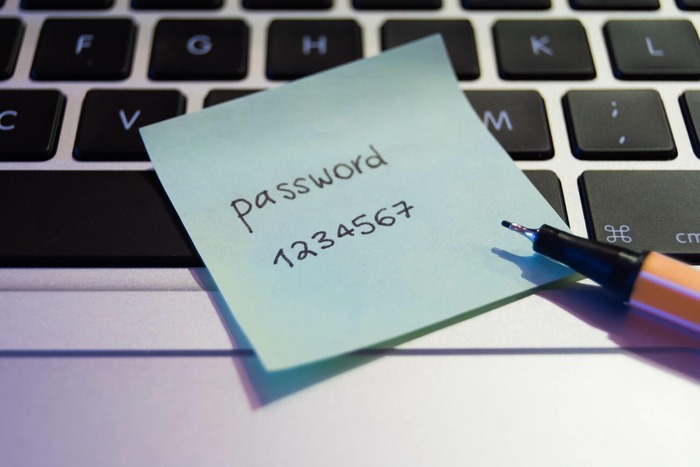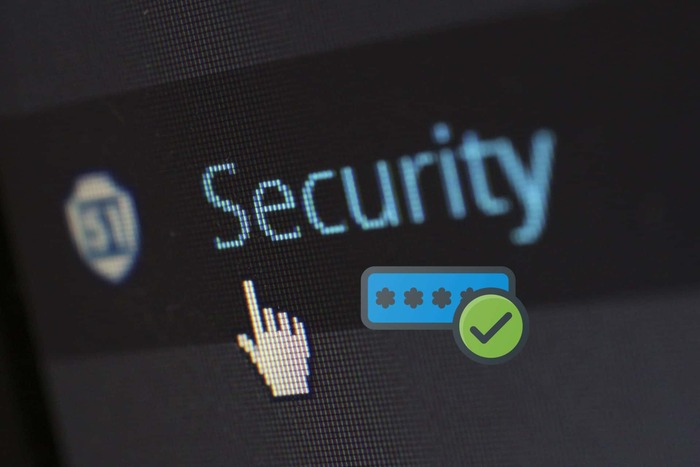
In the realm of cybersecurity, simplicity might be one of your biggest adversaries. An easily guessable password is akin to leaving the front door of your home unlocked. With the advent of sophisticated password-cracking tools, a weak password can be deciphered in mere seconds, laying bare your personal and sensitive information.
- Common Culprits: Using passwords like “123456”, “password”, or “qwerty” is akin to an open invitation to hackers. These are among the first combinations a cyberattacker will try.
- Dictionary Attacks: Cyber attackers use programs that cycle through a vast database of common words and combinations. If your password is a simple word or combination, it stands a high chance of being guessed.
The Anatomy of a Strong Password
A robust password isn’t just about length, although that’s a vital component. The true strength lies in a blend of length, complexity, and unpredictability.
- Length Matters: Aim for at least 12 characters. The longer the password, the harder it becomes for brute-force attacks to succeed.
- Complexity Counts: Mix upper and lower case letters, numbers, and special symbols. This diversity creates a vast combination pool that challenges attackers.
- Unpredictability is Key: Avoid using easily available information like birthdates, anniversaries, or names. Predictable patterns can be exploited.
The Perils of Password Reuse
Password reuse is like using the same key for every lock in your life: your home, car, office, and safe. If a malicious actor gets hold of that one key, everything you hold dear is at risk. In the digital world, when one of your accounts gets compromised, attackers will often try the same password on various platforms – be it email, social media, or online banking. This chain reaction, akin to a domino effect, means that a single breach can put multiple accounts in jeopardy.
Real-world Examples of Major Breaches Due to Password Reuse
- LinkedIn 2012 Breach: When LinkedIn was hacked in 2012, it resulted in the theft of around 6.5 million passwords. Hackers then used these passwords to break into victims’ other accounts, exploiting those who reused passwords across platforms.
- Adobe 2013 Breach: Post the significant Adobe breach in 2013, researchers found that the most popular password used by the 38 million affected people was “123456”. Those who used this same password for other services became low-hanging fruit for cybercriminals.
- Celebrities iCloud Hacks: In 2014, personal photos of numerous celebrities were leaked online. The hack was primarily a result of password reuse and weak security questions, rather than a direct breach of Apple’s services.
Unexpected Places Where Password Security Matters:
Often, we prioritize passwords for what we consider ‘vital’ platforms – our emails, bank accounts, or work-related sites. But in reality, any online platform, no matter how seemingly benign, can become a gateway for hackers if compromised. One such unexpected place is online casinos.
- The Stakes of Online Casinos: Online gambling sites are treasure troves of personal and financial data. From credit card details to personal identification, the stakes are incredibly high. Ensuring strong, unique passwords here is not just about protecting your wager but safeguarding your entire financial and personal profile. Many might overlook the importance of password security in online casinos, but a breach here can ripple out to cause significant financial and reputational harm.
In a digital age where our lives are intricately woven into the online fabric, the reuse of passwords is a perilous game. It’s not just about one account; it’s about the potential cascading effect a single compromise can have on our entire digital footprint. Whether it’s your email, your LinkedIn, or your favorite online casino – treat every password as if it’s the only barrier between a hacker and your most valuable possession. Because often, it is.
The Magic of Password Managers
Imagine having a highly secure vault where all your passwords are stored, and you only need a single, ultra-strong key to access them all. That’s essentially what a password manager does. In a world where the average individual manages numerous online accounts, recalling a unique, robust password for each can be daunting. A password manager takes the burden off your shoulders, ensuring that your digital world remains both convenient and secure.
The Benefits of Using a Password Manager:
- Convenience: The beauty of a password manager is that it simplifies your online experience. Instead of remembering a plethora of passwords, you only need to remember one master password. This master key unlocks your vault, granting you access to all your stored credentials.
- Security: At its core, a password manager is designed with security as its primary function. Not only does it offer encrypted storage for your passwords, but many also provide an auto-generation feature. This tool creates strong, random, and virtually uncrackable passwords for you, ensuring that each account you own has a robust line of defense.
- Cross-device Synchronization: In an age of multiple devices – smartphones, tablets, laptops, and more – having access to your passwords from any device is crucial. Most leading password managers offer synchronization across devices, ensuring that whether you’re logging in from your phone in a cafe or your laptop at home, your passwords are always within reach.
Top-Rated Password Managers to Consider:
- LastPass: Known for its user-friendly interface and robust security features, LastPass offers both free and premium plans to suit various needs.
- Dashlane: With a digital wallet and VPN features in addition to password management, Dashlane provides a comprehensive security solution.
- 1Password: A favorite among many users, 1Password boasts excellent security protocols and offers a travel mode, which removes sensitive data from your device when crossing borders.
- Bitwarden: As an open-source option, Bitwarden offers transparency in its security approach, and users can even host their own server if desired.
- Keeper: Beyond password management, Keeper offers secure file storage, making it a versatile tool for digital security.
Additional Password Hygiene Tips
In the digital realm, where cyber threats constantly evolve, maintaining good password hygiene is akin to regularly washing your hands in the real world. It’s a preventive measure, a first line of defense against potential intruders. Beyond relying on strong passwords and password managers, here are some other essential practices to bolster your online security.

Two-Factor Authentication: An Extra Layer of Security
Even the most robust password can, in theory, be cracked. That’s where two-factor authentication (2FA) comes into play. It adds an extra verification step to the login process, ensuring that even if someone acquires your password, they won’t gain easy access.
- How it Works: Typically, after entering your password, the platform will send a one-time code to your phone or email. Only upon entering this code will access be granted.
- Benefits: By demanding proof of possession (something you have, like your phone) in addition to something you know (your password), 2FA dramatically reduces the chances of unauthorized access.
Regularly Updating Passwords: When and Why
Changing your passwords can be likened to renewing the locks on your doors. While it may seem cumbersome, it’s a necessary step in ensuring security.
- When to Change: As a rule of thumb, important passwords (like those for your primary email or financial accounts) should be changed every three to six months. However, if there’s a suspected breach or odd activity, change them immediately.
- The Rationale: Regular updates make it harder for cybercriminals to use old data dumps or any information they might have gathered. It ensures that even if they have an old password, it’s rendered useless.
Being Wary of Phishing Attempts and Learning to Recognize Them
Phishing attacks are crafty tactics where attackers masquerade as trustworthy entities to steal your credentials.
- Common Signs: Unsolicited communications urging immediate action, misspelled URLs, generic greetings (like “Dear User”), and requests for personal information are red flags.
- Protection Tips: Never click on suspicious links or download attachments from unknown sources. Always double-check URLs before entering sensitive data, and be cautious of any unsolicited communication, especially if it conveys a sense of urgency.
In the vast, interconnected world of the internet, your security is only as strong as your weakest link. By embracing these additional password hygiene tips, you fortify your online presence, making it a stronghold against potential cyber threats. Remember, in cybersecurity, prevention is always better than cure.

